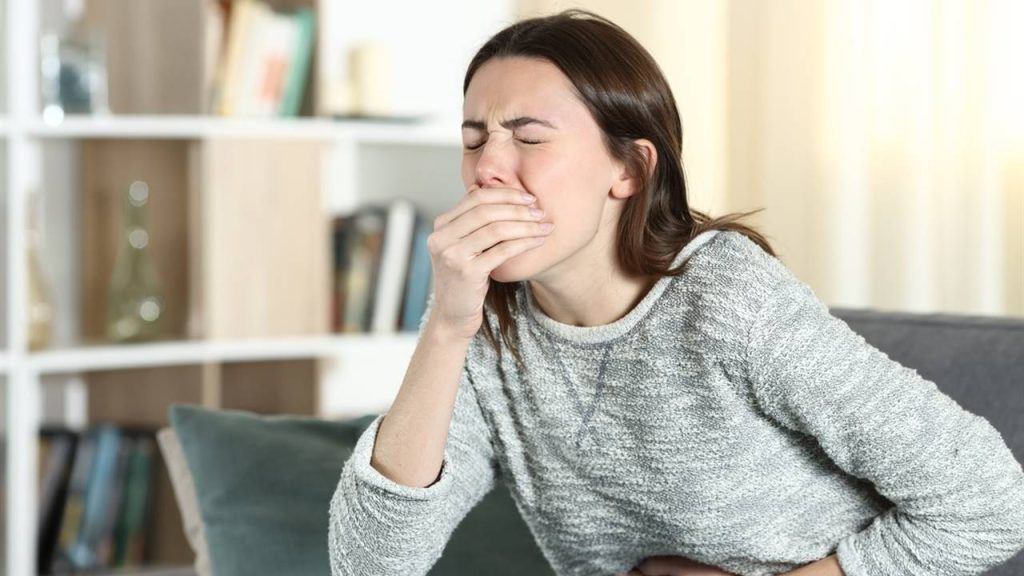Gastroenteritis is an infection that causes a lot of discomfort. There are natural remedies, foods and basic care that help relieve symptoms.

- What is gastroenteritis?
- Gastroenteritis: symptoms
- Gastroenteritis: causes
- What to eat with gastroenteritis?
- Gastroenteritis: natural treatment
- How long does gastroenteritis last
- Is gastroenteritis contagious?
Gastroenteritis is an inflammation of the stomach and intestines that causes food to be not kept in them on a regular basis, so vomiting and diarrhea occur at the same time.
In this article we will discuss the most common causes of gastroenteritis, the symptoms, how we can tackle it naturally and what to eat with gastroenteritis.
WHAT IS GASTROENTERITIS?
Gastroenteritis is an inflammation of the inner wall of the stomach and intestines that usually causes vomiting and diarrhea. Generally, although the “uncomfortable” time is bad, in most people, gastroenteritis does not involve seriousness in normally healthy people. However, it is advisable to take into account certain precautions and be attentive to avoid aggravations.
GASTROENTERITIS: SYMPTOMS
As a result of inflammation, the stomach and intestines tend to have a greater movement, so when suffering gastroenteritis, we notice several symptoms:
- Spasms
- Cramps
- Swelling
- Nausea
- Vomiting
- Diarrhoea
- Physical and mental weakness
Gastroenteritis involves a loss of water and electrolytes (mineral salts) that are dissolved in the water. Therefore, when we have gastroenteritis, we feel weak physically and mentally. In fact, dehydration is one of the major risks. Replenishing water and mineral salts through drinking is essential.
GASTROENTERITIS: CAUSES
Gastroenteritis can start for different reasons, including:
- Virus
- Bacteria
- Parasites
- Harmful substances or toxins
- Food or drink (water) poisoning
- Adverse drug reactions
Viral gastroenteritis is the most common, as well as those due to spoiled or contaminated food, for example, by bacteria such as salmonella. It is important that we keep in mind that water can be a source of germs and toxins that cause gastroenteritis. Attention if you travel or are not in your usual place.
WHAT TO EAT WITH GASTROENTERITIS?
During gastroenteritis you should eat a small amount more often to minimize the rejection that the body can produce. Avoid milk, fats, citrus fruits. It is important to take a bland diet to facilitate digestion. These foods will help you:
- Rice for gastroenteritis. Choose rice but in this case avoid brown rice. You can make rice in principle drier so that naturally the rice absorbs the liquids of the intestine (astringent effect) and then or with a little broth but if fat or oil. The water from having cooked the rice helps to replenish liquids and soften inflamed mucous membranes. A little onion will help with its antiseptic actions, but little.
- Grated carrot. You can also help the carrot well cleaned, grated and above all cooked. The raw carrot in these cases you may not be able to digest it well and you may not find it useful. Turnip and parsnip can help you, but in smaller quantities, also cooked.
- Apple or pear peeled (without skin) and cooked. They are fruits that soften and also provide you with a certain amount of carbohydrates that help recover energy. You can mix with a little banana. You can put a little cinnamon to comfort the intestine and its essential oils will favor with antiseptic actions.
As you find yourself better you can gradually introduce food. You can prepare some warm tofu, without spicy, chew it well so you are providing protein, as well as textured rehydrated soy.
GASTROENTERITIS: NATURAL TREATMENT
When we have gastroenteritis, nature usually asks us what to do: rest and drink liquids that replenish mineral salts. You can make a homemade lemonade to replenish salts or use drinking whey that is powdered and you just have to add good quality water.
- Water with lemon. Lemon water is easily prepared: in a liter of mineral water or boiled water, put the juice of 2 lemons, a tip of salt knife and a tip of baking soda knife. If you are very dizzy, and your situation allows it, you can add a little honey, since carbohydrates will give you some energy. Avoid drinking tap water and even more so in places where there may be suspicions of contamination or pipes in poor condition.
- Probiotics. Due to intestinal inflammation, the intestinal flora or microbiota will be damaged, it becomes unbalanced, so taking probiotics is important. Keep in mind that some products marketed as probiotics may indicate a different dosage whether or not diarrhea is present. That is, they can work as general care or help you, in a higher dose, to repopulate the microbiota and thereby contain diarrhea and fluid loss, this is what is called an astringent effect of diarrhea.
- Ginger. Ginger (Zingiber officinalis) is one of the antiemetic medicinal plants (which controls vomiting) par excellence. You can take infusions with a little ginger powder or grated. Keep in mind that if it is powdered its effect will be more intense, so a pinch of ginger powder would be equivalent to 1 slice of about 3mm thick fresh rhizome.
- Chamomile. Chamomile (Matric aria sp) helps to reduce inflammation of the digestive and intestinal mucosa, in addition to showing antiseptic actions, you can add a pinch of fennel fruits (Foeniculum vulgare) and coriander fruits (Coriandrum sativum) if you also have gas.
- Green tea. Tannins are astringent active ingredients and therefore show the action of counteracting or slowing diarrhea. Among the remedies that we can have more within reach are green tea (Camellia sinensis): a mild infusion will help us. Black tea is not recommended as the presence of theine (caffeine) is higher and will have the opposite effect: “it will move the gut”.
- Bearberry. The bearberry (Arctostaphylos uva-ursi) is another interesting plant for its content in tannins that act at the intestinal level.
The normal evolution is that the vomiting calms down, even if nausea remains, and the intestine takes a little longer to recover. To help in this process, it is also advisable to adopt some daily care:
- Stay comfortable and rest. Hydrating is vital.
- Change your bedding and the clothes you wear.
- If you have a high fever, severe pain, continuous liquid diarrhea and vomiting, knowing if there are any pathogens such as microorganisms or parasites can help propose a specific treatment. This requires certain laboratory tests.
Remember that some infections are notifiable, so if your gastroenteritis is due to food contamination, for example Listeria, its communication to the health monitoring system will help other people as well as locate the origin and take the appropriate measures according to traceability systems.
HOW LONG DOES GASTROENTERITIS LAST
The duration of gastroenteritis depends on the cause that is causing it. In general, in viral gastroenteritis (the most common) symptoms appear 2 or 3 days after infection. These symptoms are usually suffered for 2 or 3 days, although sometimes they can last up to 14. If gastroenteritis does not subside, always consult a professional.
IS GASTROENTERITIS CONTAGIOUS?
When gastroenteritis is caused by viruses, bacteria and/or parasites, it can be transmitted between people in the same way as other pathogens: by direct contact or with contaminated surfaces. Generally, the most common route of infection is the mouth and nose.
To prevent gastroenteritis, basic hygiene is essential: frequent hand washing, remember that they are spread by droplets from the nose, mouth, surfaces and possibly contaminated utensils. Fecal – oral contamination is a way of recontamination: that is why hand washing after going to the toilet, and extreme precautions when changing diapers to babies or if we attend to elderly people who use them.
In order to minimize the risk of gastroenteritis due to spoiled food, remember to wash knives or kitchen utensils when you change food. Do not use the same knife for example for everything you cut or handle in the kitchen. Keep surfaces, boards, etc., all clean. Check what remains at the bottom of the refrigerator and has been damaged. The cleanliness of the pantry and the fridge is important. Use containers that close well.



